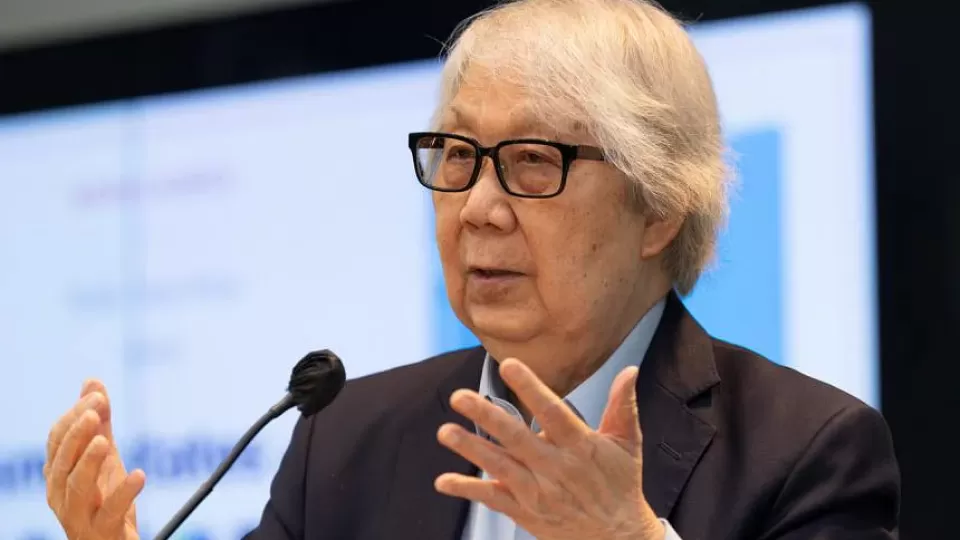September 8, 2022
SINGAPORE – In rankings of countries with the highest per capita incomes, best education systems, most competitive economies, least corrupt societies and highest gender equity, small countries dominate the top 10 spots.
At the Beijing Winter Olympics, Norway won the most medals.
And at the Tokyo Olympics, 113 out of a total of 340 medals were won by athletes from 25 small countries and territories.
Ambassador-at-large Tommy Koh on Wednesday cited these examples of how small countries, with populations of below 10 million, have punched above their weight and prove that size is not destiny.
They have shown that it is possible to overcome the handicap of size and become very successful, he added at the launch of a book of essays he edited, titled Small States In A Big World: Size Is Not Destiny.
It contains 40 essays by 46 authors from 29 small countries. They include contributions on Bhutan’s concept of gross national happiness, Costa Rica’s leadership in environmental protection and Qatar’s building of the world’s best airline.
“The world treats small countries as second-class citizens,” Professor Koh said, noting that while there are many groups for big countries on a global stage, there are few groups for small countries.
This was why in 1992, Singapore’s ambassador to the United Nations in New York, Mr Chew Tai Soo, took the initiative to establish the Forum of Small States (FOSS). It turns 30 this year.
Over the years, FOSS has grown from its initial 16 members to 108 members, representing a majority of the membership of the UN, said Prof Koh as he thanked Mr Chew, who was at the launch at the National Library on Victoria Street.
The number of members gives the group influence and bargaining power, and their mutual support has made it possible for an outstanding candidate from a small country to defeat a less outstanding one from a big country in a UN election, noted Prof Koh.
He cited how Singapore’s Daren Tang in 2020 won the vote to be appointed director-general of the World Intellectual Property Organisation.
The support of fellow small states also helped Ireland secure enough votes to win one of the non-permanent seats on the UN Security Council for 2021/2022, said Irish ambassador to Singapore Sarah McGrath, who was representing Ireland’s former president Mary Robinson.
Mrs Robinson, a former UN high commissioner for human rights, wrote one of two forewords for the book.
The other was written by President Halimah Yacob, who hoped the book would provide useful insights on how small states have been able to work together to overcome their challenges.
Ms McGrath said FOSS serves as a reminder that small states are not a minority. “We make up more than half the membership of the UN and our voices need to be heard.”
In a speech, Permanent Secretary for Foreign Affairs Albert Chua noted that the book contains many fine examples of small states which have found their niches and made useful contributions to the international agenda, from politics to economics to arts and culture.
He called on small states to spare no effort to safeguard the UN and the multilateral system, noting that they thrive best in a rules-based order where every country has an equal voice, and disputes are settled peacefully and according to international law.
Small states should also work together to amplify their collective voice and get their concerns taken into account in multilateral processes, he said, adding that their unity is even more crucial in a complex and challenging global environment.
And small states can excel in niche areas, he added, noting that one of the challenges for Singapore is to constantly figure how it can be of value to the world.
“Because of our size and constraints, small states have had to work harder and smarter to overcome our circumstances,” he said.
“Small states cannot afford the indulgence of tilting at windmills and have had to be pragmatic, take the world as it is, stay nimble and adapt quickly to stay relevant,” he added.

PHOTO: STBOOKS.SG


